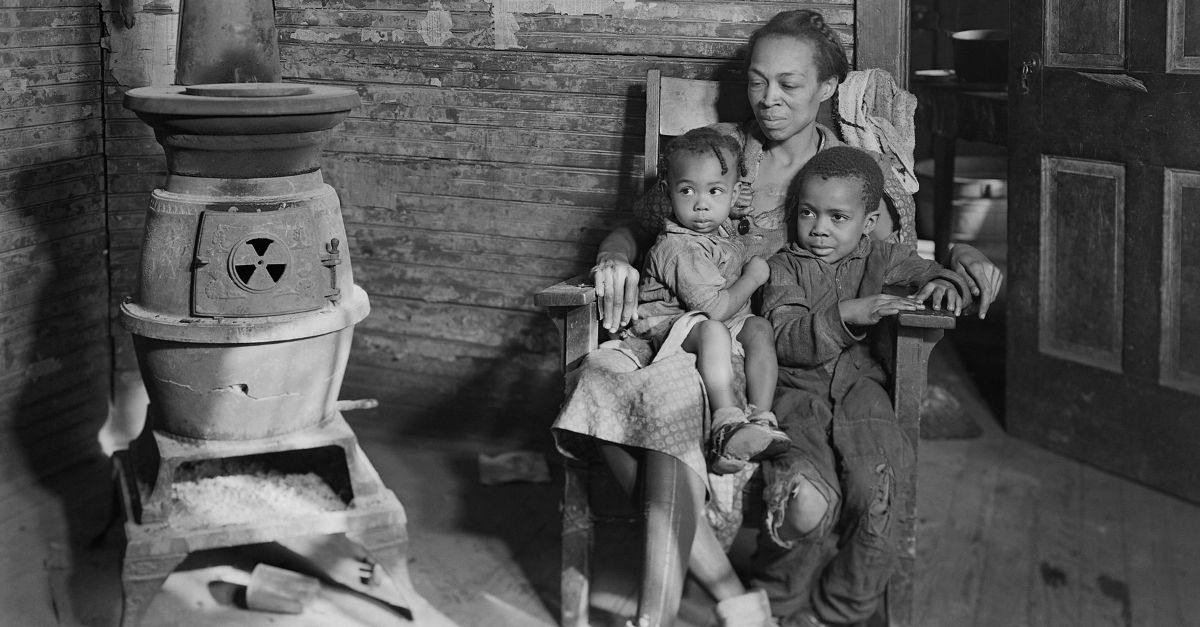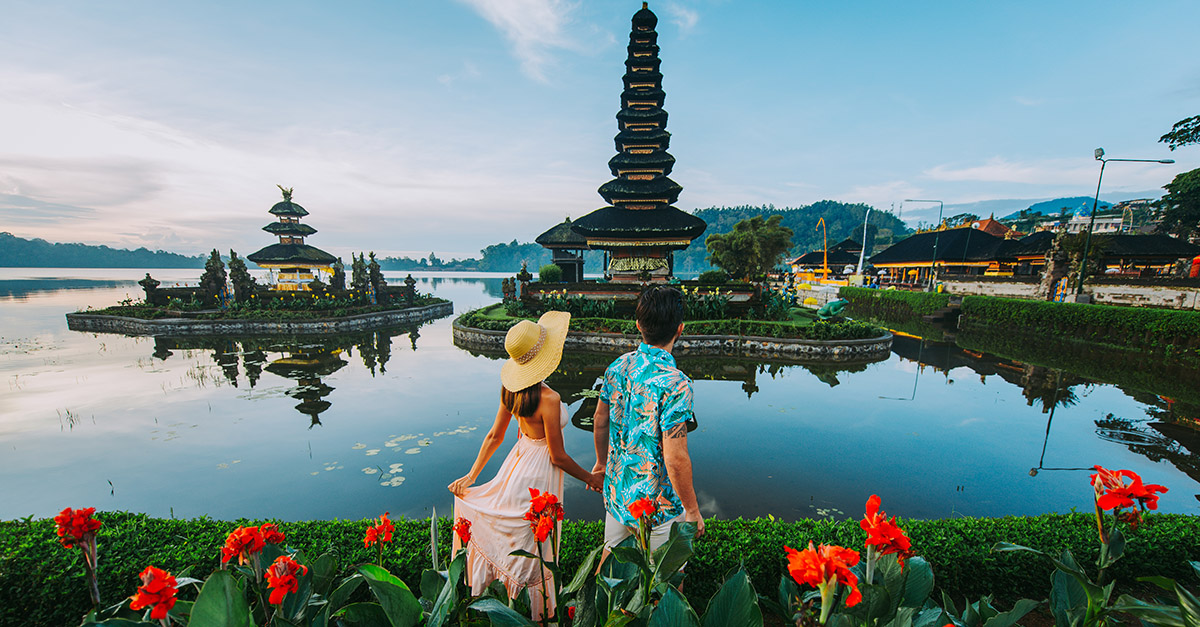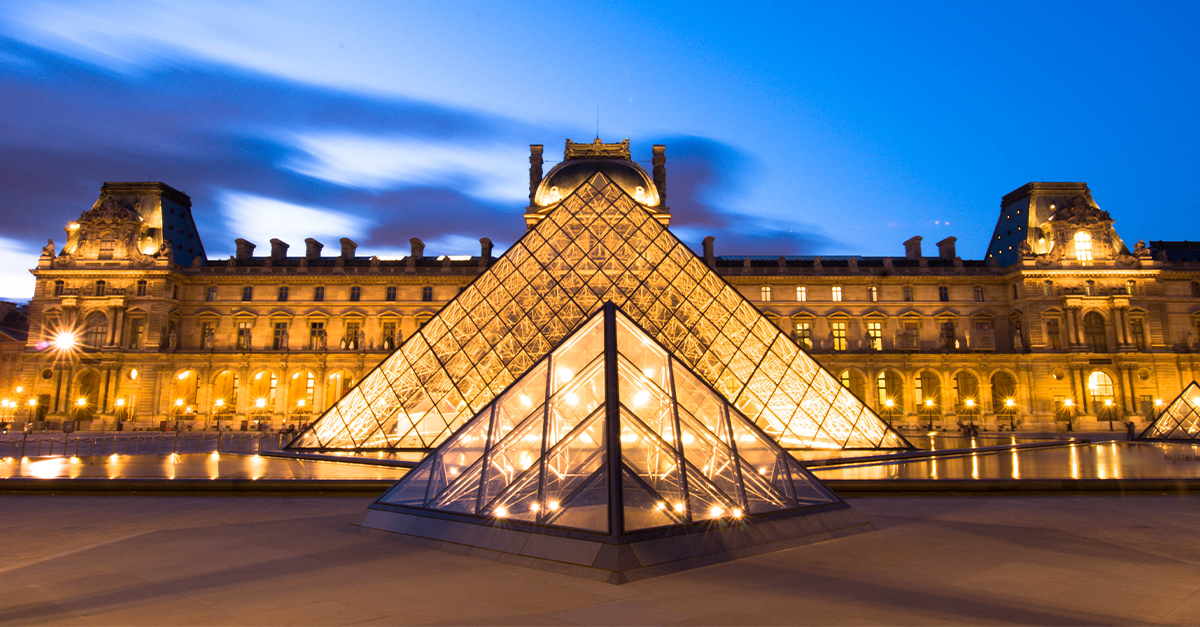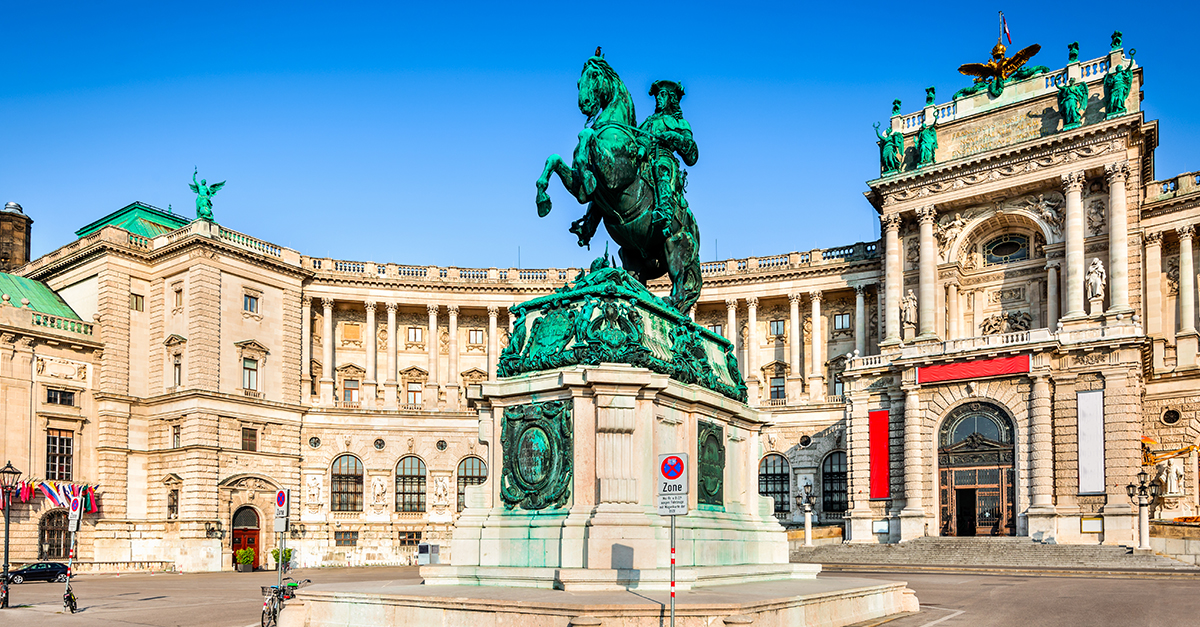The Great Depression Changed Everything
During the Great Depression, the world economy fell and significant cultural changes took place, characterized by the emergence of totalitarian governments. As individuals battled the terrible consequences of economic difficulties and sought fresh answers to their problems, this era brought about radical changes that completely transformed our world.

1. The Prelude To Crisis
The 1920s were a period of careless optimism, coming on the heels of World War I. Endless parties and wealth had people dancing and spending. True, there were those who sensed something developing behind the scenes but had no notion that a catastrophic economic crisis would soon sweep over the globe.
 Library of Congress, Wikimedia Commons
Library of Congress, Wikimedia Commons
2. Gustaf Stresemann's Warning
German leader Gustaf Stresemann cautioned before his death that although their economy appeared to be strong on the surface, it was like dancing on a volcano. If America cut off loans, political and economic chaos would happen. This presented Hitler with the ideal chance to gain power.
 Nobel Foundation, Wikimedia Commons
Nobel Foundation, Wikimedia Commons
3. The Rise Of Extreme Leaders
Stresemann was right. And Germany kept changing leaders until Hitler was appointed. When everything started falling apart in other countries, people began feeling the need to support decisive leaders who ruled in the styles of communist dictatorships and fascist regimes.
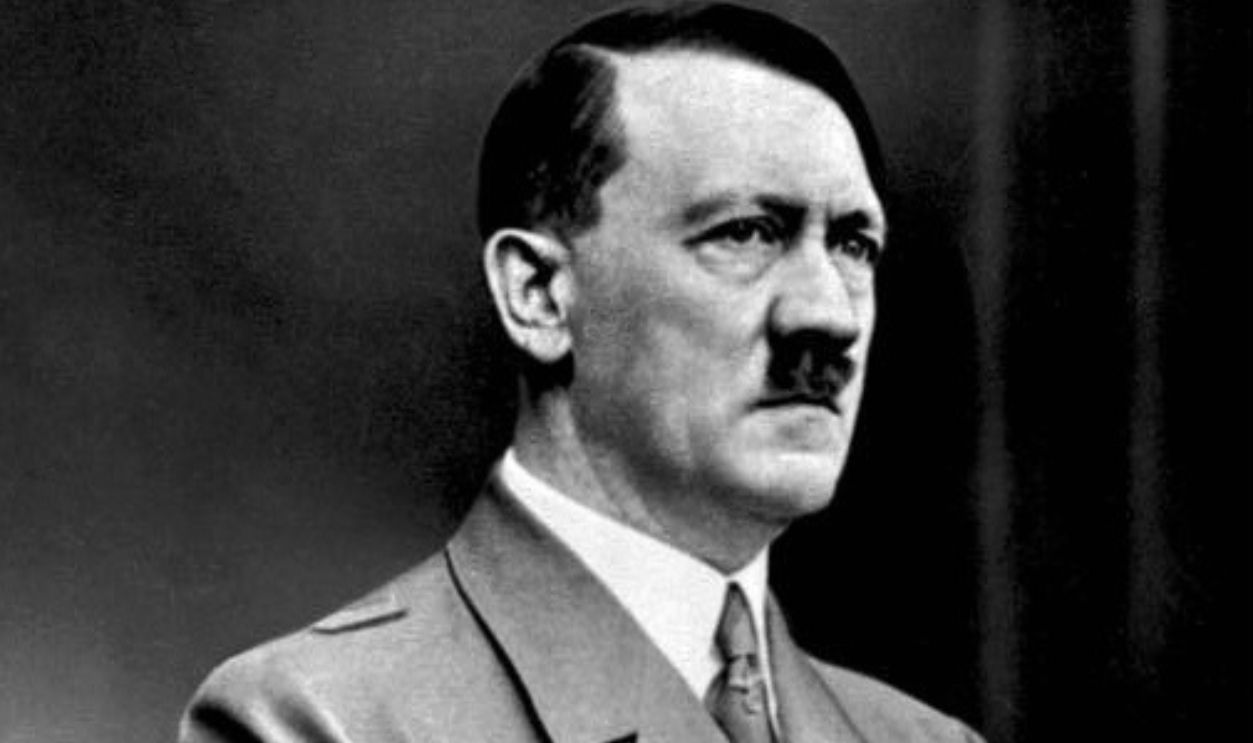 Bundesarchiv, Bild, CC-BY-SA 3.0, CC BY-SA 3.0 DE, Wikimedia Commons
Bundesarchiv, Bild, CC-BY-SA 3.0, CC BY-SA 3.0 DE, Wikimedia Commons
4. Russia's Industrialization
Although Russia was not directly impacted by the collapse of the US stock market, Communist leader Joseph Stalin regarded it as the ideal opportunity to convert millions of farmers into manufacturing laborers. This provided the industrialization and war equipment he needed for his forthcoming revolution. Another nation witnessing significant political transformation was Italy.
 Franklin D. Roosevelt Library Public Domain Photographs, Wikimedia Commons
Franklin D. Roosevelt Library Public Domain Photographs, Wikimedia Commons
5. Italy's Fascist Alignment
In Italy, Mussolini's government concocted an agreement with the Catholic Church, giving tremendous power to the Vatican and making the state fascist. In a referendum on March 24th, more than eight and a half million Italians voted in support of the regime. Interestingly, this occurred just as Britain was giving its people more independence.
 Jebulon, CC0, Wikimedia Commons
Jebulon, CC0, Wikimedia Commons
6. British Elections And Unemployment
In 1929, Britain had an election where one party promised to solve unemployment. They called it the "Flapper Election" because all women over 21 could vote for the first time. Although these leaders made big promises, they couldn't repair the failing economy. Meanwhile, tensions were running high in the British colony of India.
 Unknown Author, Wikimedia Commons
Unknown Author, Wikimedia Commons
7. Gandhi Pushed For India's Independence
Amid the Depression, the Indian National Congress wanted a better future for its people–one free of British rule. Gandhi pushed for immediate independence by organizing non-violent resistance–a brilliant novel idea that inspires many to this day. Would this bold move impact other nations?
 Unknown Author, Wikimedia Commons
Unknown Author, Wikimedia Commons
8. Political Instability In Britain
British Prime Minister Ramsay MacDonald started making confusing speeches, which made it clear he was suffering from dementia. Similar to having a teacher who was no longer able to provide clear explanations, this situation led to increased confusion and uncertainty. Other countries were also in unreliable hands.
 Solomon Joseph Solomon, Wikimedia Commons
Solomon Joseph Solomon, Wikimedia Commons
9. Spain's Political Shift
Spain was in the process of changing from a dictatorship to a republic. This was the equivalent of a corporation changing CEOs every year – it was that unstable. One aging dictator even joked that if he had known he would be governing the country, he would have studied more and partied less.
 Tomás Padró Pedret, Wikimedia Commons
Tomás Padró Pedret, Wikimedia Commons
10. Rise Of The Nazis
The Nazis were slowly gaining power in Germany by promising to solve the country's many problems. Instead of sticking to anti-Jewish messages, they began convincing people that the current democratic government was the problem. People's belief in such promises fueled the rise of authoritarian leaders like Hitler.
11. Authoritarianism Is 'In'
Power-hungry leaders like Stalin and Mussolini rose up with promises that they could bring back prosperity. People were desperate for solutions and agreed to live by these leaders' strict rules. The difficult times made people feel the need for a strong hand to guide them.
 Unknown Author, Wikimedia Commons
Unknown Author, Wikimedia Commons
12. Stalin's Totalitarian Control
Although Stalin's policies in Russia led to terrible suffering, his new plans created tremendous industrial growth. People had little freedom and were forced to work in factories, but they still supported Stalin. World leaders were becoming afraid that communism would spread to other countries.
 Unknown Author, Wikimedia Commons
Unknown Author, Wikimedia Commons
13. Film As Propaganda
Fascist leaders like Mussolini and Hitler were the pioneers of using films to spread their ideas. This was similar to modern leaders who first started using social media videos to promote their messages and gain followers. In Germany, it worked like magic.
 Erich Ludwig Stahl (1887–1943), Wikimedia Commons
Erich Ludwig Stahl (1887–1943), Wikimedia Commons
14. Nazi Electoral Success
The Nazis shocked everyone by winning the elections when the primary vote swung from the center parties to the right wing. Many panicked, and about half of Germany's currency reserves were immediately pulled out of the country.
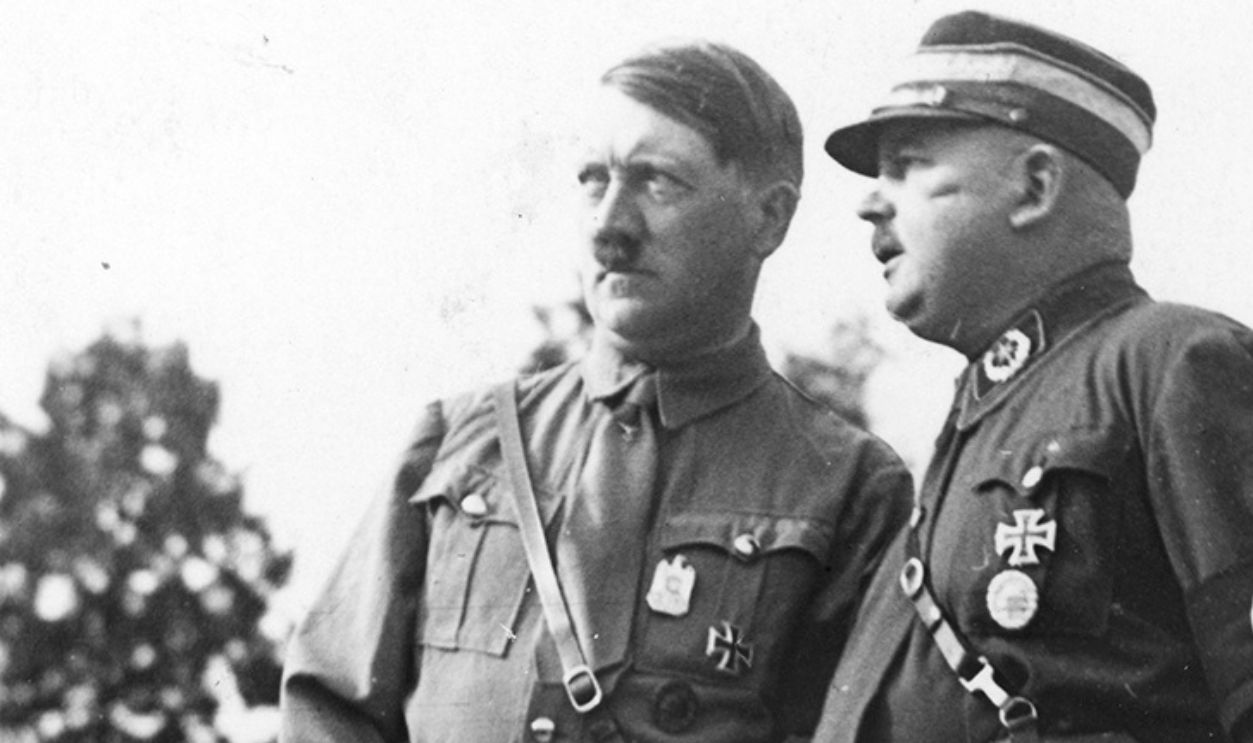 Bundesarchiv, Bild 146-1982-159-21A / CC-BY-SA 3.0, CC BY-SA 3.0 DE, Wikimedia Commons
Bundesarchiv, Bild 146-1982-159-21A / CC-BY-SA 3.0, CC BY-SA 3.0 DE, Wikimedia Commons
15. Censorship And Control
When the Hollywood film All Quiet on the Western Front premiered in Berlin, the Nazis in the audience played dirty barely 10 minutes after it started. They let white mice loose in the theater, set off stink bombs, and spread itching powder. It was just the beginning of censorship and control over what people saw and heard.
 J.P. Cathony, Wikimedia Commons
J.P. Cathony, Wikimedia Commons
16. International Reactions To Censorship
Even in Hollywood, some people thought it might be wise to ban certain movies. They feared anti-war films would make young people weak and disloyal. This showed just how powerful the Nazis' ideas were becoming globally. But ideas were not the only thing spreading.
 Unknown Author, Wikimedia Commons
Unknown Author, Wikimedia Commons
17. Economic Depression Spreads
The Great Depression spread from America to other countries–bringing misery to people around the world. Streets were filled with desperados selling matches and loose cigarettes, people shining shoes for pennies, rag pickers, bag carriers—anything to make a bit of money.
 Bundesarchiv, Bild, CC-BY-SA 3.0, CC BY-SA 3.0 DE, Wikimedia Commons
Bundesarchiv, Bild, CC-BY-SA 3.0, CC BY-SA 3.0 DE, Wikimedia Commons
18. Liberalism Under Attack
The terrible hardships of the economic crisis caused people to question whether their governments were at fault. Perhaps the old ways weren't working anymore. Political instability was rampant across Europe, leading to frequent leadership changes–like musical chairs with severe repercussions.
 National Archives at College Park, Wikimedia Commons
National Archives at College Park, Wikimedia Commons
19. Art And Culture Reflected The Tough Times
The Great Depression had a tremendous impact on art and culture. Artists, writers, and filmmakers everywhere used their work as a way to express the era's harsh realities. This period produced many famous pieces of art and literature that inspire us to this day. But things would only get tougher.
 World Telegram staff photographer, Wikimedia Commons
World Telegram staff photographer, Wikimedia Commons
20. Unemployment Soared
One in four American workers was out of work by 1933. People got together to support each other and convinced local communities to open breadlines and soup kitchens wherever possible. The banks were crumbling, too.
 Nationaal Archief, Wikimedia Commons
Nationaal Archief, Wikimedia Commons
21. Banks Failed Under Pressure
Banks worldwide couldn't hold up under the economic strain, and many collapsed. People everywhere lost their life savings and also lost their trust in the banks. The entire financial system was exposed as being too fragile and global trade began to suffer.
 National Archives Photo, Wikimedia Commons
National Archives Photo, Wikimedia Commons
22. Global Trade Networks Broke Down
US President Hoover issued the Smoot-Hawley Tariff, which was supposed to protect US jobs but ended up sparking a global trade war. International trade collapsed, making things even worse. There were other consequences that no one really anticipated.
 National Photo Company, Wikimedia Commons
National Photo Company, Wikimedia Commons
23. Politics Changed Worldwide
Political shifts were happening everywhere because people looked to their leaders for radical solutions. Totalitarian regimes were taking over, changing the global landscape, and democratic institutions were failing. The power struggles were just beginning.
 Unidentified photographer, Wikimedia Commons
Unidentified photographer, Wikimedia Commons
24. Japan Began Its Aggressive Expansion
In 1931, Japan invaded Manchuria, marking the start of its military expansion in Asia. This aggressive move rocked the region and set the stage for future conflicts. The invasion was a sign of Japan's growing ambitions and changing attitudes.
 Unknown photographer, Wikimedia Commons
Unknown photographer, Wikimedia Commons
25. Social Safety Nets Were Lacking
During the Great Depression, many countries didn't have the social safety nets we count on today. Without unemployment benefits or welfare programs, millions of people were left without support. Money and food became a problem, especially when the dust storms hit US farmers.
 George Everett Marsh Jr., Wikimedia Commons
George Everett Marsh Jr., Wikimedia Commons
26. The Dust Bowl Made Things Worse In America
In the 1930s, dust storms swarmed the American Midwest, turning farmland into wastelands. This environmental disaster made the economic hardship even worse. Thousands of families became "dust refugees" looking for better lives elsewhere. At least one good thing came out of the Dust Bowl.
 Arthur Rothstein, Wikimedia Commons
Arthur Rothstein, Wikimedia Commons
27. Environmental Conservation Gained Attention
The environmental impact of the Dust Bowl and other ecological issues during the Great Depression brought awareness to the idea of conservation. This started movements to protect natural resources and prevent further degradation. When people get together, they can make big changes, as was seen socially.
 Arthur Rothstein, Wikimedia Commons
Arthur Rothstein, Wikimedia Commons
28 Social Unrest Grew Everywhere
Economic hardship led to social uprisings in many countries. Strikes, protests, and riots became common as people demanded better conditions from their leaders. This set the stage for significant changes in how governments were handling the situation.
 Everett Collection, Shutterstock
Everett Collection, Shutterstock
29. The New Deal Aimed To Fix America's Economy
US President Franklin D. Roosevelt's New Deal introduced programs and reforms to revive the US economy. It was aimed to create jobs and restore public confidence. This marked a major shift in how governments helped their people in times of hardship.
 Social Security Online, Wikimedia Commons
Social Security Online, Wikimedia Commons
30. Psychological Impacts Were Deep And Lasting
The Great Depression left lasting psychological scars. The loss of jobs, homes, and savings led to widespread anxiety and despair. People learned to be cautious with money. But they also began to demand more money for their work. It was the start of labor unions.
 Dorothea Lange, Wikimedia Commons
Dorothea Lange, Wikimedia Commons
31. Labor Movements Gained Strength
The economic crisis sparked and energized labor movements around the world. Workers organized strikes for better wages and conditions. The New Deal supported labor rights in the US, but a new type of worker was coming onto the scene.
 Everett Collection, Shutterstock
Everett Collection, Shutterstock
32. Women's Roles Changed During The Depression
As men lost jobs, women increasingly entered the workforce to support their families. This shift challenged traditional gender roles and broadened the scope for future advances in women's rights. Working together was the new name of the game.
 Howard R. Hollem, Wikimedia Commons
Howard R. Hollem, Wikimedia Commons
33. The Entertainment Industry Thrived As An Escape
Despite the hardships, the entertainment industry absolutely flourished. Movies and radio gave people the distractions they needed from daily struggles. Hollywood's Golden Age began at this time, spreading hope and laughter. How did schools adapt to the Depression?
34. Education Systems Faced Cuts And Closures
Schools and universities struggled when their funding was cut. Many students dropped out to support their families, making things worse for the education system. The need for reform became clear, and the government stepped in to update the curriculum and set up vocational programs.
 Farm Security Administration, Wikimedia Commons
Farm Security Administration, Wikimedia Commons
35. Agricultural Practices Evolved
Farmers had to adapt to survive the economic and environmental challenges. New farming techniques and government aid helped some of them recover. Innovations emerged from necessity. With more industrialization, family farms didn't need as much work, and more people found jobs in factories. However, food was still a problem.
 Everett Collection, Shutterstock
Everett Collection, Shutterstock
36. Global Health Crises Compounded Economic Woes
The Great Depression worsened public health issues. Malnutrition and lack of medical care became widespread problems. Across the world, countries had limited resources and struggled to get food and medicine to their people. Public health and medical services were established, and a volunteering spirit encouraged people to help their fellow citizens.
 Everett Collection, Shutterstock
Everett Collection, Shutterstock
37. Technological Innovation Continued Despite Hardships
Necessity encouraged technological advancements that helped 'make do with less.' Innovations were introduced in different fields as people looked for solutions to their problems. Creativity thrived under pressure. One such area was architecture.
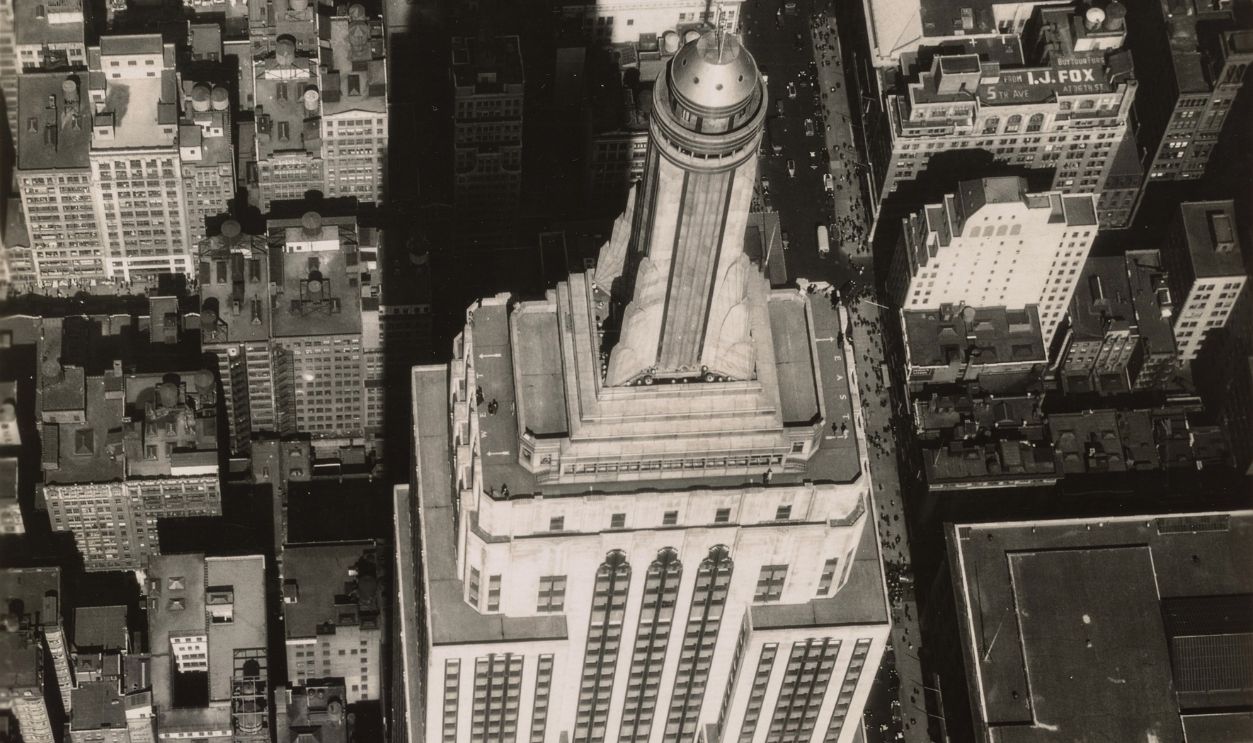 National Archives and Records Administration, Wikimedia Commons
National Archives and Records Administration, Wikimedia Commons
38. The Depression Influenced Global Architecture
Architecture was another area affected by budget cuts, helping shift its focus from beauty to functionality. That was the beginning of modernist and minimalist designs that emphasized simplicity and practicality. Meanwhile, international relations were anything but simple.
 Carol M. Highsmith, Wikimedia Commons
Carol M. Highsmith, Wikimedia Commons
39. International Relations Grew More Tense
The era's economic instability contributed to rising tensions between countries. The world saw trade disputes, competition for resources, and plenty of diplomatic conflicts. The strain was palpable. There is no doubt much of this strain contributed to the start of the next World War.
 Everett Collection, Shutterstock
Everett Collection, Shutterstock
40. Financial Markets Were Restructured
The financial collapse led to many fundamental changes in banking and investment regulations. Governments introduced reforms to prevent future crises and stabilize their economy. New rules were put in place for how money was handled.
 Everett Collection, Shutterstock
Everett Collection, Shutterstock
41. Global Communication Networks Evolved
The Depression highlighted the need for better communication and information sharing between nations. Technological advances from that period included international radio broadcasts, the telegraph, telephone networks, airmail, news wire services, and radar. All of these helped connect people.
 Koshy Koshym, Wikimedia Commons
Koshy Koshym, Wikimedia Commons
42. The Depression Birthed A Sense Of Community
Despite the hardships, people came together to support one another. Community organizations and mutual aid societies popped up to help people in need. Solidarity was key. The Salvation Army, YMCA, the Rotary and Lions clubs, and the Community Chest are perfect examples of that volunteering spirit.
 Everett Collection, Shutterstock
Everett Collection, Shutterstock
43. Literature Captured The Spirit Of The Era
Writers chronicled the Great Depression with powerful stories that highlighted the resilience and struggles of ordinary people. These stories offered a legacy of reflection and hope. Novels like Gone with the Wind, The Good Earth, Of Mice and Men, and Brave New World are still inspiring people today.
 Al Aumuller, Wikimedia Commons
Al Aumuller, Wikimedia Commons
44. The Depression's Legacy Continues To Influence Us
The lessons learned from the Great Depression continue to shape our economic policies and social programs today. The era changed how people and governments around the world approach financial stability and social welfare. History can offer a lot of wisdom in how we address the future.

